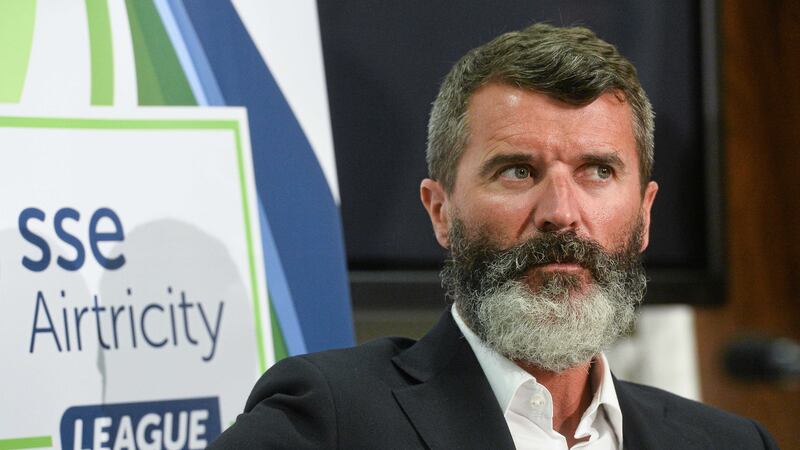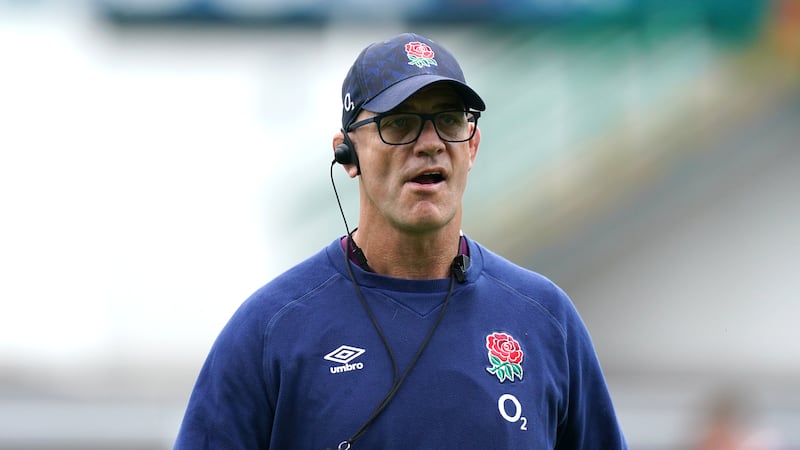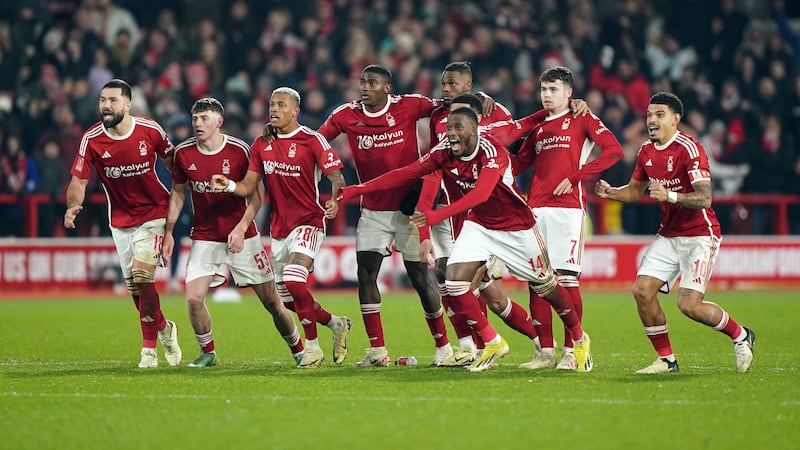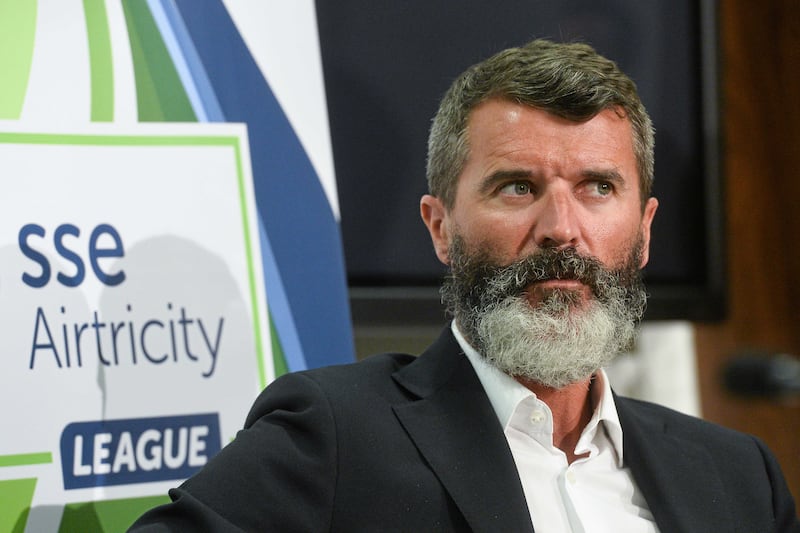FOOTBALL commentator and columnist Liam Beckett is set for a showdown with Manchester United legend Roy Keane on Thursday in the Armagh City Hotel. Pat McGibbon, now part of Portadown’s backroom team, will welcome his former Manchester United team-mate for a gala fundraiser.
Proceeds will go to McGibbon’s Train To Be Smart (TTBS) Juniors charity, a Craigavon-based football coaching project that also provides education to young people on the importance of sport for improving physical, mental and emotional health. The charity was inspired by the tragic loss of Pat’s brother Phillip to suicide in 1993. Here, Pat talks to Brendan Crossan about his time at Manchester United and his passion to make a difference in young people’s lives through playing football...
Brendan Crossan: Did you always want to be a professional footballer?
Pat McGibbon: From about the age of 13 or 14, it was something I always wanted to do. I told my careers teacher that it was something I wanted to do.
BC: How did you get your big break in signing for Manchester United?
PMcG: I was 18 and captaining Portadown’s youth team and, at the same time, I was playing for Armagh minors… Portadown ended up winning the Youth Cup and I was playing in the reserves and doing fairly well.
I then had a trial with United in April of ’92. I went for a week and played against Aston Villa in the reserve team. Dwight Yorke and Dalian Atkinson were playing for Villa and I marked them and did well enough to be asked back. I went back that summer for three weeks and they offered me a three-year deal.
BC: Was the move to Manchester United everything you’d imagined?
PMcG: It was a whirlwind. My ambition was to wake up in the morning and get paid for something I loved doing.
BC: Do you remember your first encounter with Alex Ferguson?
PMcG: It was obviously during the trial. The time I went over the second time, in August, he called me into his office and he said: ‘We’d like to offer you a contract’. The one thing I always noted was his passion for the game, not just on a first team level, but he was interested in all facets of the club. He knew everybody and made people feel important.
BC: What were Ferguson’s strengths as a manager?
PMcG: Although people talk about the ‘hairdryer’ treatment - and, of course, that’s going to happen every so often - I personally felt his inter-personal skills were very good and he made players feel wanted.
BC: As a central defender, you were trying to break into a championship-winning team. Ferguson had Gary Pallister and Steve Bruce as his central defensive pairing back then...
PMcG: He also had Ronny Johnsen and David May who could play there. When you looked at Steve Bruce, from a physical point of view, he wasn’t particularly quick or tall, but he was a great organiser and a great leader. He was very, very brave and he scored important goals.
BC: Was it demoralising that you couldn’t break into that United team?
PMcG: No, it wasn’t demoralising. You always look back on it and remember certain instances where you were hoping to get into the team. You were constantly training hard and you were trying to do the right things. But when the team’s winning, it’s obviously hard to break in. When the team is winning and doing well, you can’t expect to come in unless there’s an injury or a change in formation.
I went over in 1992 and they won the league for the first time in 25 years… For the last couple of years in the reserves, I played alongside Chris Casper and we’d a great understanding.
BC: Would you have changed anything about your career? Would it have been better for you to start at a different club rather than at Manchester United?
PMcG: I wouldn’t change anything. The five years at United were so successful. You got to meet so many genuine characters. Yes, of course, people talk about the York City game in the League Cup [when he got sent-off and gave away a penalty], but that didn’t define me.
In the final year, I’d broken into the first team squad and played the pre-season friendlies. So I was on the fringes and got my confidence back. Then I went out on loan to Swansea and managed one game after I suffered a bad knee injury.
That was me out for five months after two operations. I’m philosophical about it because that’s all part of the game. There were certain things you could control and certain things you couldn’t. It was a bit like my brother Philip’s death [to suicide]. I couldn’t control that. So I put everything in perspective after that.
BC: Philip’s death probably inspired the football charity that you created. Tell us a bit about the football charity Train To Be Smart Juniors…
PMcG: The idea of the charity is to improve mental health through sport by matching actions to words. Sport not only helps people physically and technically, but also mentally and emotionally by helping with cognition and teaching resilience. Through Philip’s issues and after learning about anxiety/depression, I know that cognitive behaviour therapy is used as a treatment of severe depression. TTBS aims to teach life skills and values in the future to produce accountability and allow children to deal with the pressures of today’s society
BC: A night with Roy Keane is designed to raise money for TTBS. How did you go about getting Keane to agree to come over?
PMcG: I finished my physiotherapy degree, but I wasn’t passionate enough about it. It was only when I did my coaching badges I realised that’s where my passion lay. I looked at the whole mental and emotional side of the game because I wanted to give kids the opportunities that I had.
I hadn’t spoken to Roy in about 15 years. I always got on well with him. When I left to go to Wigan Athletic, I’d go back to Carrington [Manchester United’s training base] occasionally to watch the team training and Roy would be one of the first ones to come over and ask me how things were going. It was typical of him. I know people see the driven side and the side that scares some people but that doesn’t tell the real story.
I made contact through Tom Mohan, who was a player at Portadown when I was there and is now the U17 manager of the Republic of Ireland and Tom spoke to Roy. I then got a text from Roy, so once I told him what it was about, he said he would do it. He didn’t know about Philip’s death as he joined United about eight months after that. When I told him we were trying to promote positive mental health through sport, he said he would do it for me. I was obviously delighted and it says a lot about him.
BC: How highly did you rate Roy Keane?
PMcG: He was a terrific player. He drove the team on. He was so focused. That’s the way he was and that’s why he got so much out of the players around him. Nobody was scared when Roy Keane was on the pitch with him. People talked about Paul Ince - and he was a cracking player as well - but when Roy went onto a pitch, his team-mates felt more confident about winning.
BC: Who was the best player at Manchester United during your time?
PMcG: Paul Scholes, to me, was the best. And that was part of the reason I started Train To Be Smart because, if you did a 50-metre sprint, Scholes would probably be last. If you did endurance work, Scholes would probably have his inhaler at the end of it. But give him a ball and you couldn’t get near him. He was a step ahead. He always had a picture in his head before he received the ball.
BC: When were you at your peak?
PMcG: At 26 or 27. I think it was in 2000/01, I was playing every week for Wigan and then Paul Jewell came in and I put myself on the transfer list that year. The dynamics all changed. It’s such fine margins in football and it can come down to the opinion of a manager. It was soon after that Bernadette’s dad got Alzheimers at 58.
We’d to make a decision. We were always coming home, but it was supposed to be when I was 32 or 33. I’d finished my physio degree when I was 29, so we made the decision that my wife needed to be closer to her dad.
BC: Which manager at Wigan did you flourish under?
PMcG: In five years, I had seven different managers. So that tells its own story. That’s the way Dave Whelan [Wigan chairman] worked. During my time, we had John Deehan, Colin Greenall, Steve Bruce, Paul Jewell and Bruce Rioch among them, so we’d quite a few.
FOR further information on TTBS Juniors or the Roy Keane event, email Pat McGibbon on pmgsportsservicespr@gmail.com



